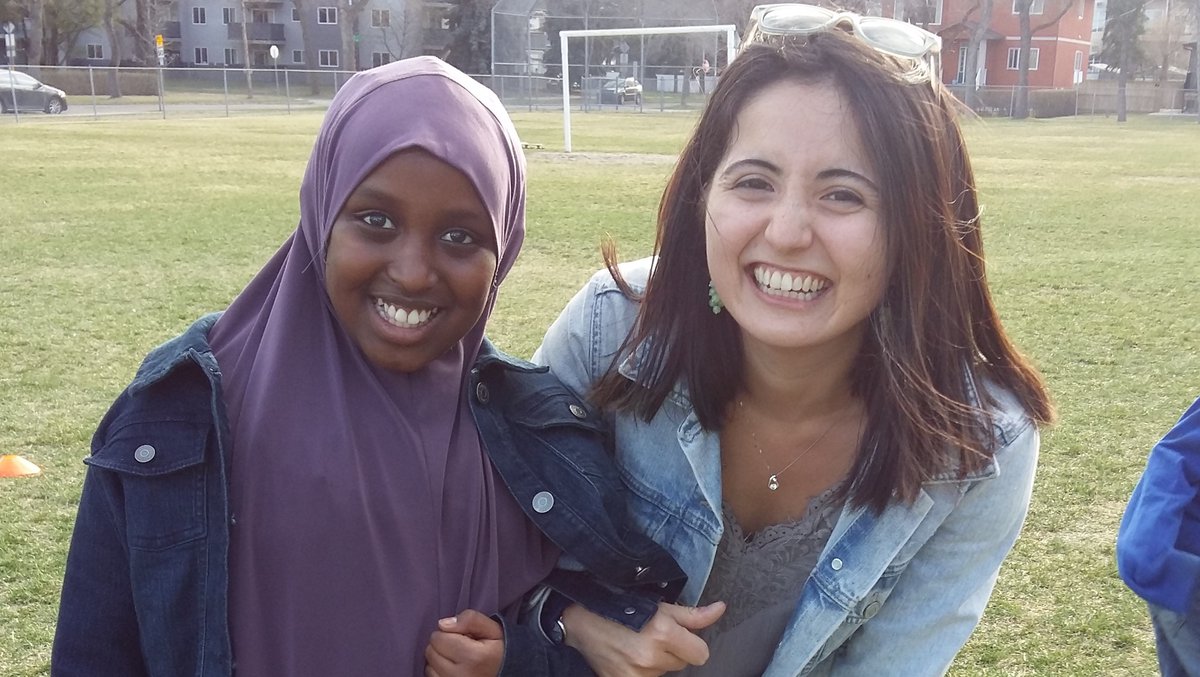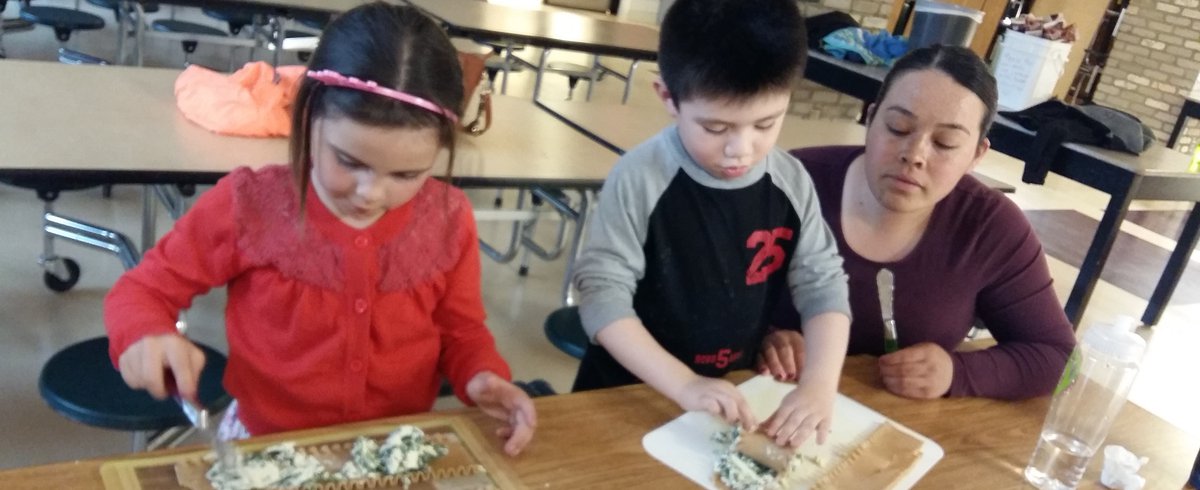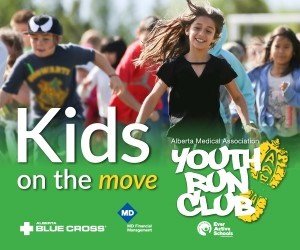Health promotion: One family, one community, at a time
With her 2017-18, multi-partner/collaborator Emerging Leaders in Health Promotion project (“Integrating Healthy Living for New Canadians/CHANGE McDougall Family Program”), Dr. Finola Hackett learned that “collaborating with a community, with individuals and families directly, is a very rewarding approach to health promotion: it need not be grandiose, on a society-wide scale, but rather can be incremental, in the forging of joyful and warm relationships …”
Building on the foundation of the successful concept of CHANGE Adventure Camp (CHANGE Health Alberta), which “builds life skills in families through meal preparation, physical activity and connecting with nature,” Dr. Hackett wanted to provide a program “to meet the healthy living needs of inner city, low-income, new immigrant families,” specifically in the Central McDougall area of Edmonton’s inner city.
“Newcomers to Canada face the competing concerns of feeding their families with nutritious meals, learning English to improve educational and working opportunities, and staying healthy and active with physical activity and leisure time,” she explains. That’s a lot of needs and often-competing goals for families, many with both parents employed outside the home, in multiple jobs and/or evening shifts.

The community of Central McDougall
The Central McDougall area was the perfect location for Dr. Hackett’s project, serving as home to Edmonton’s largest population of non-Caucasian, non-Aboriginal peoples, with the proportion of residents who moved there from outside Canada (from 2013-18) at 15%, double the city average of 7%. Additionally, it is a low-income area (average household income of $44,000), with a good portion of its population dependent on public transit and walking to get to work.
Serving as the geographic (and otherwise) heart and soul of the community, John A. MacDougall School was a natural choice to host the weekly evening health-focused/English as a second language (ESL) camp, which aimed to “address the simultaneous challenges of food security, English language learning, and recreational activities,” says Dr. Hackett.
Working with school principal Corene Zmurchik (who generously provided the school’s gym, kitchen and cafeteria free-of-charge for the camp’s Thursday evening activities) and representatives of the Multicultural Family Resource Society, Dr. Hackett and her project partners designed a program to meet the public health priority (health promotion through nutrition education and physical activity), as well as the personal and social priorities (English language education and child care) of the target group in a setting convenient and familiar to the families.

Successful program delivery, team-style
Reflecting on the joint development of the project concept by the MFRS, the school, project mentor Dr. Doug Klein* and herself, Dr. Hackett says, “In partnership with the community, school and immigrant organizations, we wanted to provide a comprehensive and accessible weekly program to help families manage competing objectives – food, English and recreation – and have an enjoyable time doing it.”
And based on the participant’s evaluation comments from the 26, two-cohort evening sessions – for which CHANGE staff and volunteers planned nutrition, meal prep and activity programming; and MFRS staff conducted ESL lessons – an educational and enjoyable time was had by all, young and old. Big ‘take-aways’ and favorite experiences from the sessions included:
“New Canadian foods … teaching my children cooking and food preparation … nutrition and label-reading … tasting and eating raw foods (“eating raw vegetables in salads”) … veggies with dips (“very new taste!”) …”
The children commented largely on the physical activities, particularly enjoying the new games. Although there were equally as many positive comments about the food: “I learned that you’re supposed to eat breakfast every morning!” and “Somehow you could add spinach with eggs.” And “If you don’t drink enough water, your pee will get darker.”
While Dr. Finola developed a greater appreciation for the unique challenges faced by immigrant families trying to build homes and lives in a strange, new (cold!) country, she also acquired specific skills, including “the ability to translate complex nutritional information into understandable and engaging messages; the importance of sensitivity in working with low-income families and children; and most of all,” she adds, “the skill of listening and observing in order to learn from the community as much (or more) than I can teach them.”
*Dr. Klein is a family physician and researcher in the Department of Family Medicine, University of Alberta. In 2012, Dr. Klein founded CHANGE Alberta (Canadian Health Advanced by Nutrition and Graded Exercise), a multidisciplinary approach to integrating nutrition and exercise interventions in primary care settings.
About the ELiHP grant program
The Emerging Leaders in Health Promotion (ELiHP) grant program provides funding to help medical students and resident physicians conceive and implement health promotion projects in support of the development of their CanMEDS/FM core competencies, particularly health advocacy.
Sponsored by the Alberta Medical Association, MD Financial Management, the Canadian Medical Association and its subsidiary, Joule, ELiHP projects facilitate the growth of physician leadership and advocacy skills in a mentored environment, while enhancing the well-being of the general Alberta population through education, advocacy and innovative care.

